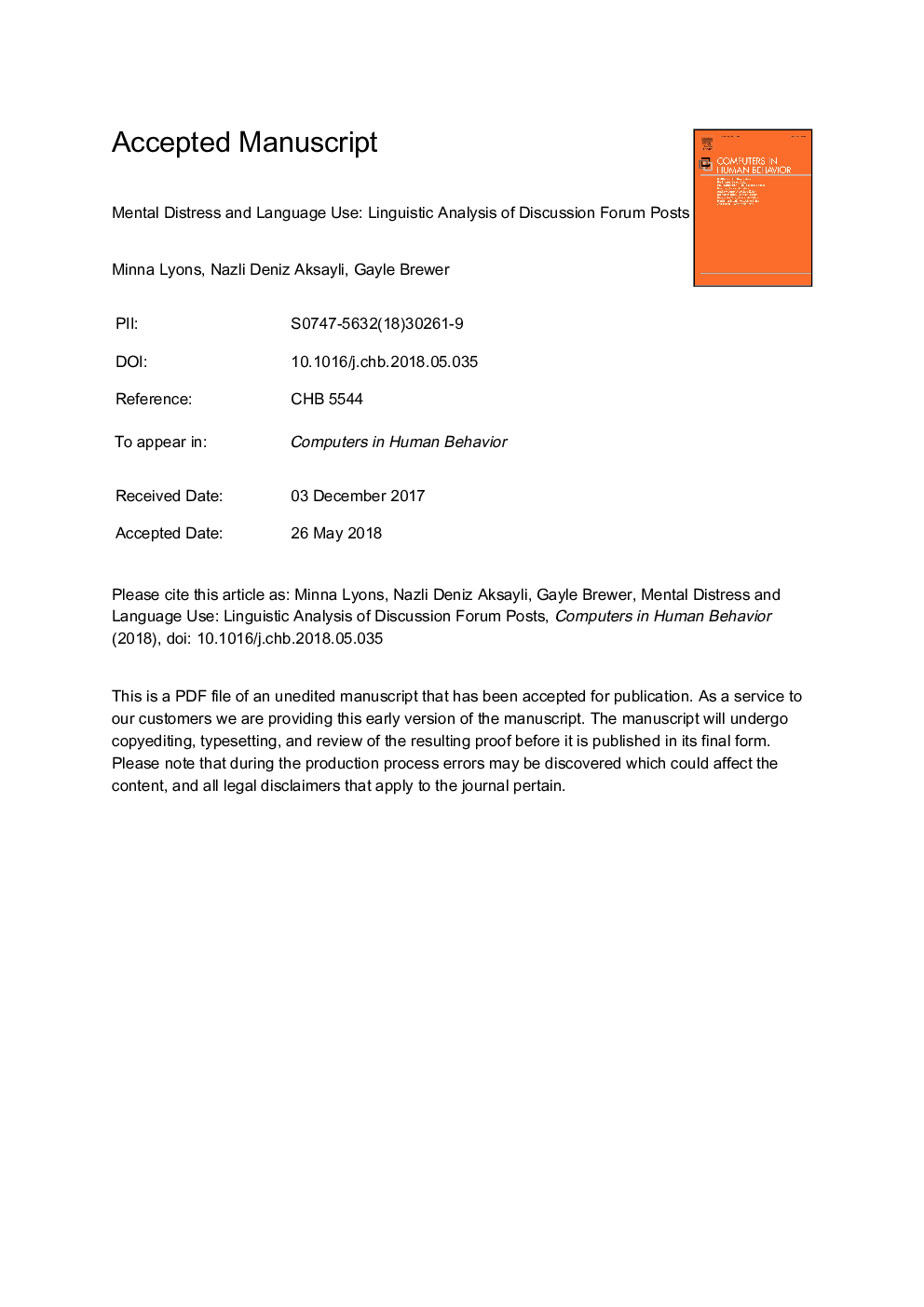| Article ID | Journal | Published Year | Pages | File Type |
|---|---|---|---|---|
| 6835747 | Computers in Human Behavior | 2018 | 25 Pages |
Abstract
Online peer support groups have become a popular arena for interacting with others who experience similar types of distress. Previous studies have identified distinctive linguistic patterns displayed by those experiencing a wide range of physical or mental health difficulties, especially in terms of increased use of first-person singular pronouns and negative words. We used the Linguistic Inquiry and Word Count program (LIWC) in comparing the linguistic content of individuals in online communities for different types of mental distress (Generalized Anxiety Disorder, Borderline Personality Disorder, Major Depressive Disorder, Obsessive-Compulsive Disorder, and Schizophrenia) and controls (a finance discussion forum). Compared to the control group, people who experience any form of distress displayed a higher frequency of singular personal pronouns and higher frequency of negative emotion word use. Those who participated in schizophrenia discussion forums had the highest use of third person plural pronouns (e.g., they, them), which could reflect persecutory ideas associated with the diagnosis. Borderline Personality Disorder discussion forums had the highest incidence of using third person singular pronouns (e.g., he, hers), which could be due to excessive focus on significant others, possibly because of insecure attachment patterns. Findings highlight important similarities between those identifying with different forms of mental distress.
Related Topics
Physical Sciences and Engineering
Computer Science
Computer Science Applications
Authors
Minna Lyons, Nazli Deniz Aksayli, Gayle Brewer,
